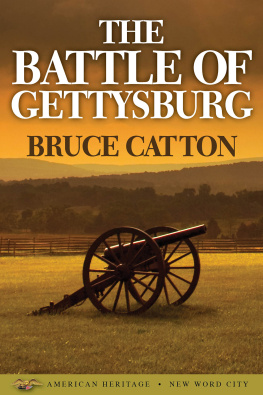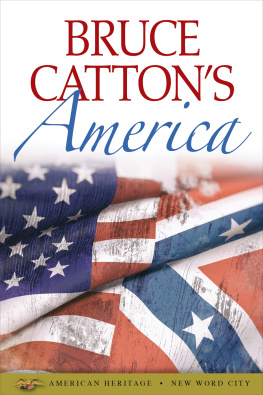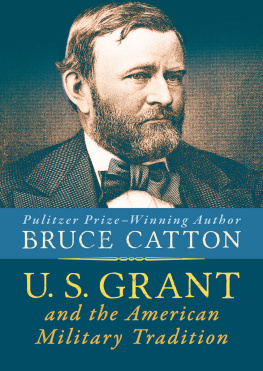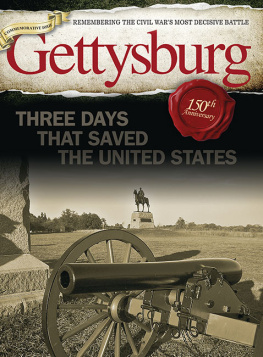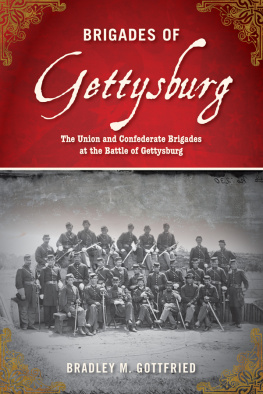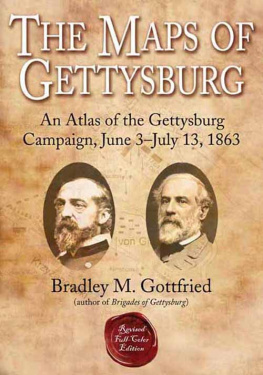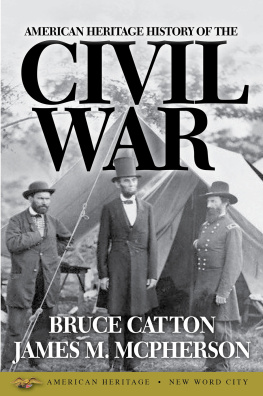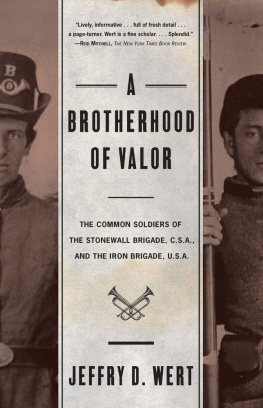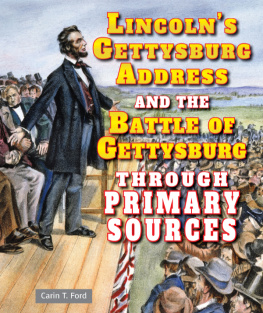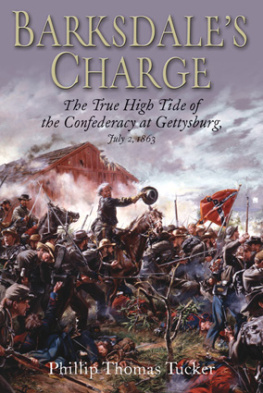Bruce Catton - The Battle of Gettysburg
Here you can read online Bruce Catton - The Battle of Gettysburg full text of the book (entire story) in english for free. Download pdf and epub, get meaning, cover and reviews about this ebook. year: 2014, publisher: New Word City, LLC, genre: History. Description of the work, (preface) as well as reviews are available. Best literature library LitArk.com created for fans of good reading and offers a wide selection of genres:
Romance novel
Science fiction
Adventure
Detective
Science
History
Home and family
Prose
Art
Politics
Computer
Non-fiction
Religion
Business
Children
Humor
Choose a favorite category and find really read worthwhile books. Enjoy immersion in the world of imagination, feel the emotions of the characters or learn something new for yourself, make an fascinating discovery.
- Book:The Battle of Gettysburg
- Author:
- Publisher:New Word City, LLC
- Genre:
- Year:2014
- Rating:3 / 5
- Favourites:Add to favourites
- Your mark:
- 60
- 1
- 2
- 3
- 4
- 5
The Battle of Gettysburg: summary, description and annotation
We offer to read an annotation, description, summary or preface (depends on what the author of the book "The Battle of Gettysburg" wrote himself). If you haven't found the necessary information about the book — write in the comments, we will try to find it.
Bruce Catton, Pulitzer-Prize winner and one of the most acclaimed historians of the Civil War, vividly recreates the 1863 Battle of Gettysburg. From the opening shots to General George Picketts ill-fated charge, he tells the dramatic story of the battle that resulted in more than 51,000 Union and Confederate casualties and changed the course of the war.
The Battle of Gettysburg — read online for free the complete book (whole text) full work
Below is the text of the book, divided by pages. System saving the place of the last page read, allows you to conveniently read the book "The Battle of Gettysburg" online for free, without having to search again every time where you left off. Put a bookmark, and you can go to the page where you finished reading at any time.
Font size:
Interval:
Bookmark:
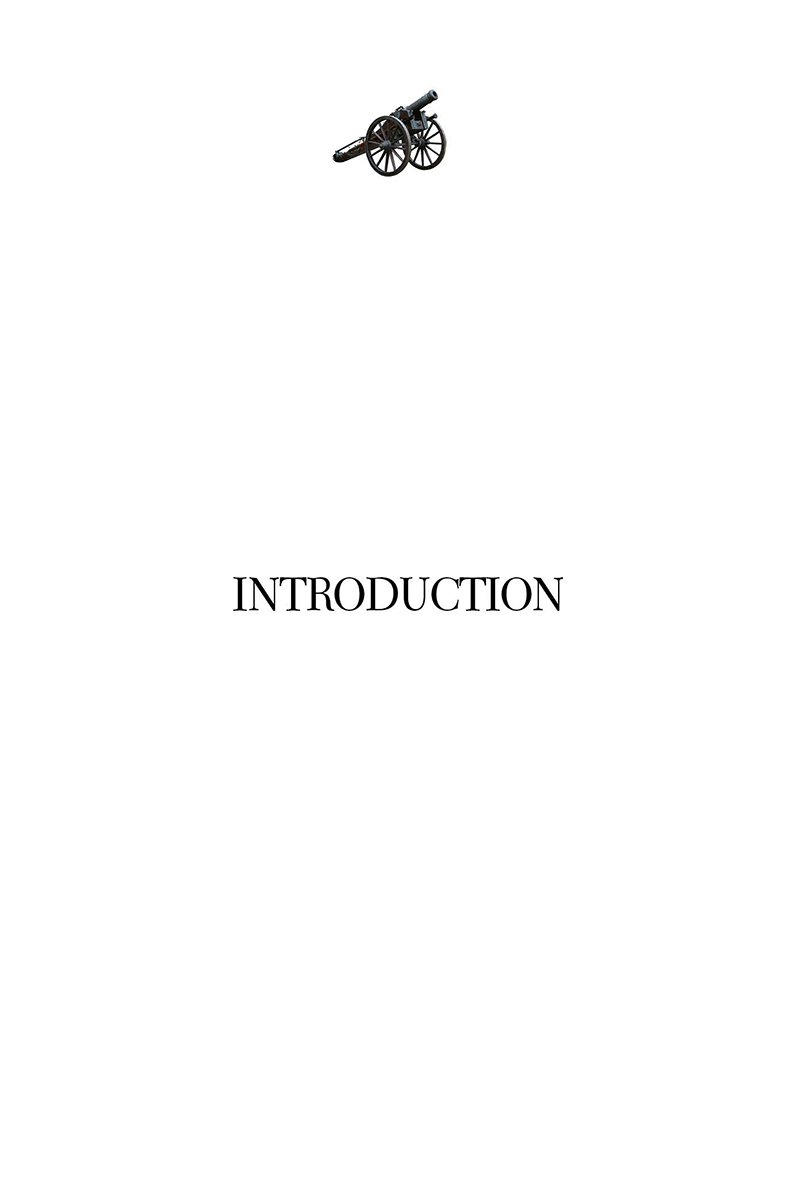
On July 1, 1863, Marcellus Jones, a young cavalry lieutenant from Illinois was placed in command of a Union sentry post west of a small Pennsylvania town called Gettysburg. Around 7:30 a.m., Jones saw a cloud of dust down the road. Confederate troops were marching towards his position. The officer grabbed a carbine, braced it on a fence post, and pulled the trigger.
It would be the first of more than a million shots over the next three days as early skirmishes escalated into the bloodiest battle ever fought in America. The previous month, General Robert E. Lee and his Confederate Army of Northern Virginia had invaded Northern territory, hoping to lure the Union Army into a fight to the finish. Under a scorching July sun, 150,000 men would push the limits of human endurance and over a third of them entered history as casualties.
That conflict marked a turning point in the struggle to preserve the Union. As President Abraham Lincoln would say in his immortal address four months later, the bravery and sacrifice of those soldiers would bring forth a new birth of freedom that would ultimately lead to equality for all its citizens.
In this book, Bruce Catton, American Heritages founding editor, brings to life the 150-year-old story of Gettysburg. The glory and pageantry of battle is here, and so is its horror and tragedy. In the stories of Northerners and Southerners alike, Catton gives us insight into the courage and tenacity of those who fought so nobly.
Their sacrifice was not in vain. As Lincoln wrote, government of the people, by the people, for the people, shall not perish from the earth thanks to these brave Americans.
- Edwin S. Grosvenor
Editor-in-Chief and Publisher
American Heritage
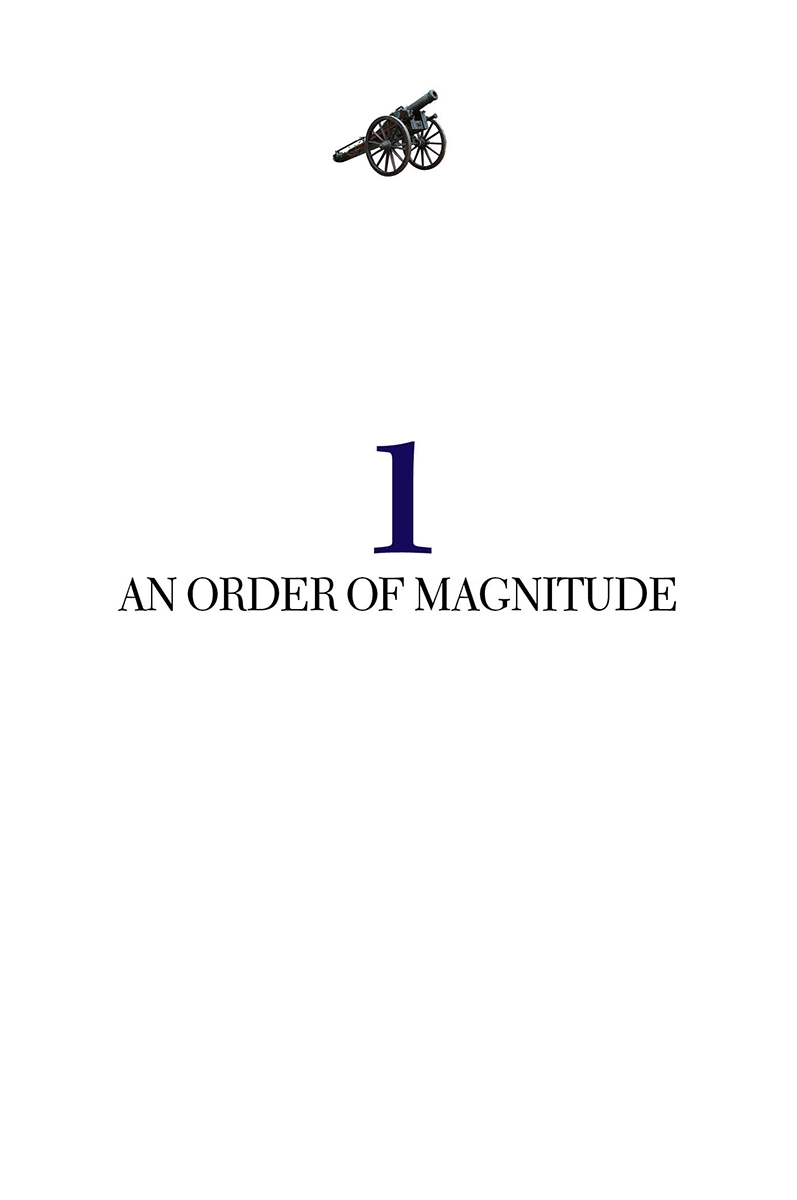
The June night was dark and warm and a steady rain fell as several thousand Confederate cavalrymen lay sound asleep in the open fields near Salem, Virginia. They had no tents, and they were as wet as if they had fallen into a river, but they had seen worse nights than this; by the late spring of 1863, a Confederate cavalryman was tough enough to sleep anywhere as long as no one was shooting at him. The cavalry was getting a good nights rest, so when a courier came cantering up the muddy road, identified himself, and went on to headquarters, no one stirred except a drowsy staff officer who got up to take the couriers envelope.
That envelope contained orders from General Robert E. Lee , commander of the Army of Northern Virginia , addressed to Major General James E.B. Jeb Stuart , who led Lees cavalry. Stuart, like everyone else, was sleeping in the rain. As a major general, he was entitled to a tent - in fact, there was a farmhouse just fifty yards from his encampment - but Jeb Stuart refused to fare any better than his men, and if they slept on the ground in the rain, he would do the same. His adjutant, having opened the envelope, tramped across the wet grass to arouse the general, and by the light of a lantern, Jeb Stuart sat up to read General Lees orders.
The orders were just what Stuart wanted. Lee was giving him a job but also the leeway to find his own way to do it, and General Stuarts way in such matters usually had a little extra style and dash - a touch of daring that could turn a routine assignment into a picturesque adventure. As a result, Jeb Stuart had become the most famous cavalryman alive; as a good soldier, he was proud of his reputation and wanted to add to it. He read General Lees dispatch and began to draft the order that would put his cavalry in motion.
Jeb Stuart came from a line of men made famous by service to their country. Born on a Virginia plantation to Scotch-Irish parents, Archibald and Elizabeth Letcher Pannill Stuart, Jeb had seven older siblings and three younger, but was one of only five sons to survive beyond youth. His father fought in the War of 1812 with the British, was prominent in Virginia politics, and was a representative in the United States House. His great-grandfather, Alexander Stuart, was a commander in the Revolutionary War.
Homeschooled by his mother until he was twelve, and then by his aunt and uncle - Judge James Ewell Brown, for whom he was named Stuart enrolled at Emory and Henry College at age fifteen.
That summer, Stuart was forbidden from enlisting in the army because he was too young. Two years later, in 1850, he joined the military academy at West Point, on an appointment from United States House Representative Thomas Hamlet Averett , who had defeated his fathers reelection bid.
Stuart finished West Point thirteenth in his class of forty-six, tenth in cavalry tactics, and was one of eight honorary cavalry officers heralded for his horsemanship. He was second captain of the cadet corps. His weakest discipline was engineering in which he graduated twenty-ninth, hampered by his poor drawing skills.
Also, at West Point, he received from his classmates the facetious nickname Beauty for he was not a handsome young man; his slight chin was described as so short and retiring as positively to disfigure his otherwise fine countenance. His beard, grown in haste following graduation, was seen as an improvement.
His first commission was to the United States Regiment of Mounted Rifleman in Texas; three months later, he joined the newly-formed First Cavalry Regiment and was quickly advanced to first lieutenant. About this time, he met and, after a brief courtship, married Flora Cooke, whose father was Lieutenant Colonel Philip St. George Cooke . Plans for a gala wedding at Fort Riley, Kansas, were set aside when news arrived that Stuarts father had died; instead, the ceremony was small and attended by only a few family members. One daughter, born in 1856, died within a day; a second came in November 1857 and was named for her mother.
In 1857, while battling the Cheyenne Indians in Kansas, Stuart took a bullet to the chest from an old-fashioned pistol, which barely broke the skin. His military prestige continued to grow. He received a patent in 1859 for inventing a saber hook for the cavalry, which improved the method in which sabers were attached to belts. He met up again with Lee at this time, a colonel when radical abolitionist John Brown raided the national arsenal at Harpers Ferry, a catalyst for the Civil War.
Just days after being promoted to captain, Stuart resigned from the United States Army to join the Confederate States Army, for which he was commissioned lieutenant colonel of the Virginia Infantry, under Major General Lee. At Harpers Ferry, he took command of the First Virginia Cavalry Regiment, was promoted to colonel in July 1861, and by September, was a brigadier general.
The Civil War would pit Stuart against his father-in-law, Colonel Cooke, who decided to stay with the United States Army even though his own son, John Rogers Cooke, had joined the Confederates. He will regret it but once, and that will be continuously, Stuart wrote to his brother-in-law. Stuarts wife, Flora, had named their son, born in 1860, after her father; but in disgust, Stuart had the name changed to James Ewell Brown (Jimmie) Stuart, Jr.
In the First Battle of Bull Run , Stuarts cavalry had scattered the Union infantry and pursued the fleeing Federalists. Next, he took command of the Confederate outposts along the upper Potomac River.
Stuart was described in a letter from General Joseph E. Johnston to Confederate President Jefferson Davis as calm, firm, acute, active, and enterprising. Those qualities were about to be put to their greatest test yet.
Font size:
Interval:
Bookmark:
Similar books «The Battle of Gettysburg»
Look at similar books to The Battle of Gettysburg. We have selected literature similar in name and meaning in the hope of providing readers with more options to find new, interesting, not yet read works.
Discussion, reviews of the book The Battle of Gettysburg and just readers' own opinions. Leave your comments, write what you think about the work, its meaning or the main characters. Specify what exactly you liked and what you didn't like, and why you think so.

